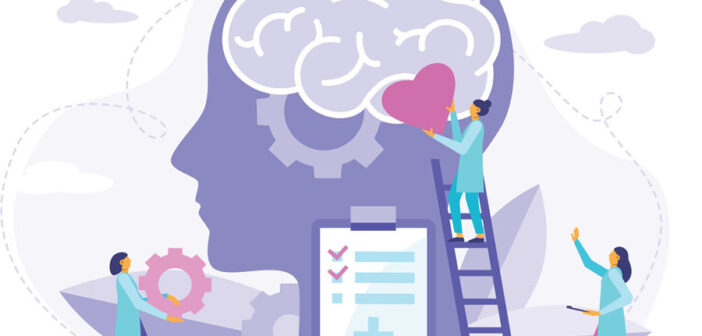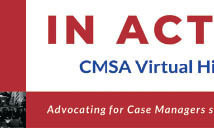Nearly two years after the first case of COVID-19 was detected, we have seen the world change in ways that were previously unimaginable. Healthcare professionals are weary, working long hours and dealing with staffing challenges. They have added stressors like inconsistent compliance with COVID precautions by the general public and other safety concerns; hospitals are overrun with patients of all ages struggling to survive. Unfortunately, prolonged experiences such as these have become the new normal as new variants continue to emerge. Vaccination rates still aren’t as high as they should be, and our healthcare system has not been able to implement systematic and sustainable changes to mitigate the unrelenting stress healthcare professionals are facing.
Healthcare professionals continue to face unimaginable stress, exhaustion and burnout, and they need support to remove or mitigate stressors and tools to help them cope. In this article, we’ll attempt to provide you with those tools. But it’s important for us to first recognize what clinicians are up against during this storm.
The individuals behind the masks, gowns and gloves have spent the last two years dealing with this global health crisis head-on. Nurses, in particular, have been subject to the pressure of working overtime and picking up additional shifts, all while taking on more patients because of staffing issues. This has led to nurses working harder and longer, all while delivering high-quality care and maximizing patient outcomes.
This dilemma has exacerbated overwhelming feelings of burnout across the healthcare industry. In fact, according to the American Nurses Foundation Mental Health and Wellness Survey Report, 75% of nurses reported feeling stressed and 68% reported feeling frustrated. The majority of respondents also reported being overworked, and nearly half of the respondents reported feeling undervalued.
Clinicians are often attracted to a career in healthcare because of their passion and commitment to caring for others. However, working through the pandemic, they have often made their own health needs secondary to those of the people they care for. After years of prioritizing the needs of patients and the systems they work within, many clinicians are left feeling exhausted and overwhelmed. In fact, the American Nurses Foundation survey found that between August of 2020 and August of 2021, there was an 11% increase in nurses reporting feeling overwhelmed, from 51% to 62%.
Though burnout and stress are systemic and need significant attention at that level, below are four steps that we hope will be helpful to you in finding needed support and caring for yourself during these challenging times.
1. Build your own toolkit based on what you need in the moment. In the myriad of information overload, it is often difficult to find what you need without investing countless hours of searching for the information. The American Nurses Association initiated the Well-being Initiative, dedicated to helping support the mental health and resilience of nurses. Within this online tool, there is a “Stress Assessment Screener” that walks individuals through a few questions, suggests resources and guides for what one might need at that exact moment. Based on responses, the questionnaire recommends everything from free 30-minute virtual yoga sessions to online peer support groups. Additionally, the Greater Good Science Center UC Berkeley continually puts out science-based practices for building resilience, more happiness and connection to your life. Of note is their Pathways to Happiness, an interactive journey that starts with a quiz to assess your goals and current well-being, then recommends practices to try for a week and continues to build on that.
2. Say Yes to making time for your mental and physical health. Clinicians are extraordinary individuals whose passion for their profession and compassion for their patients are why they enter into the profession in the first place. In the case of nurses, for example, this has landed them the #1 spot in being the most trusted profession for 20 years in a row, according to a 2022 Gallup poll. While they take center stage for being most trusted, the health of our nurses is often worse than that of average Americans. Though the issue of the nurses’ well-being and that of their fellow clinicians is systemic, as individual clinicians, we need to feel empowered to prioritize time for ourselves as a part of our routines. Self-care is not selfish, and investing time in yourself does not take away from what you need to do for others. Try scheduling a block of time in your calendar dedicated to an activity you enjoy. Having something to look forward to each day may help you reset after a long shift or unwind on your day off, all working toward promoting resilience. Whether it’s a morning walk to get coffee, to participate in a virtual guided meditation (resources), or to meet a friend for dinner, be sure to do something that takes you out of the work environment and brings you joy. In fact, seven out of 10 (71%) respondents in the American Nurses Foundation survey said spending time with friends and family was an activity that has helped strengthen their well-being, so be sure to prioritize time with your loved ones.
3. Talk through your feelings and trauma. A good way to start working through the feelings and trauma you’ve experienced is to understand the root cause. The circumstances you are working under are challenging and often difficult to comprehend. To help gain insight into your emotions, you can start by journaling before, during or after your shifts. You may notice specific triggers or changes to your mood based on events throughout the day. Then, you can start to understand the rationale behind your emotions to help bring clarity to the situation. By monitoring when we experience certain emotions, what triggers them and how we cope with them, we gain a helpful way to build our own self-awareness and build our emotional elasticity muscle.
Aside from journaling, there are many other ways to express yourself, validate what you are feeling and maintain optimism. For example, there are online gratitude practices and expressive writing programs through the American Nurses Association that help guide you through your journey toward mental resilience. If writing is not for you, there are also other resources like podcasts tailored for building resilience and exploring the possibilities of getting through the hard stuff. Resources like the Mount Sinai Road to Resilience Podcast, the American Association of Critical-Care Nurses’ COVID-19 Support Series, and the NASW Social Work Talks are just a few that can be helpful.
Additionally, the concept of Trauma-Informed Care (TIC) is another tool to help process and work through stressors and traumatic life events. A recently published article in CMSA Today titled “Leading with Care: Navigating a Journey to Health with Trauma-Informed Care Leadership” explores this concept and can be really helpful in building your own resilience as well as when working with the populations you serve.
4. Grow your support network. In times of uncertainty and many challenges—such as what we see with the COVID-19 pandemic—having social connections and feeling a sense of belonging is extremely important for mental health and well-being. Your feelings of exhaustion are shared by thousands of healthcare workers across the country, including your peers. Reach out to this network for support because connecting on shared experiences—whether positive or negative—can help us cope. Maybe it is a meeting with coworkers outside for a walk or even grabbing a cup of coffee after hours. Perhaps a conversation with friends and family outside of the industry is what you need. Talking with individuals who care about your mental and physical health can help reduce your stress and process some of your emotions while enjoying time outside of work.
Spending time with your peers and family may help reduce stress, but sometimes you need the help of a professional. Therapy is a great option for individuals looking to understand their emotions and become more resilient when difficulties in the workplace arise. There are easy ways to schedule free and confidential mental health support through programs like the Therapy Aid Coalition and Give an Hour through The Hospital Heroes Program. These services are offered both virtually and in person and can be done as frequently as you desire. Consider also tapping into the resources provided by your employers, such as Employee Assistance Programs and other well-being resources. There’s an enormous number of challenges with delivering care, and the current situation is making our work even more challenging. In order for us be at our best, we must prioritize and approach our own mental and physical well-being with intentionality. You can’t pour from an empty cup, and we should not be expected to. There is no single prescription around ensuring that you are adequately cared for during challenging times. However, expanding your toolkit repertoire can help you refine what works for you and enable you to tap into the appropriate tools and resources with situation awareness and sensitivity to circumstances.
REFERENCES
American Association of Critical-Care Nurses Covid-19 Support. (n.d.). COVID-19 Support Podcast Series. American Association of Critical-Care Nurses. https://www.aacn.org/clinical-resources/covid-19/podcast-series.
American Nurses Foundation & Joslin. (2021). Pulse of the Nation’s Nurses Survey Series: Mental Health and Wellness. Taking the Pulse on Emotional Health, Post-Traumatic Stress, Resiliency, and Activities for Strengthening Wellbeing. https://www.nursingworld.org/∼4aa484/globalassets/docs/ancc/magnet/mh3-written-report-final.pdf.
American Nurses Association. (n.d.). The Well-Being Initiative. https://www.nursingworld.org/practice-policy/work-environment/health-safety/disaster-preparedness/coronavirus/what-you-need-to-know/the-well-being-initiative/.
Give an Hour Giving Help and Hope. (2021, July 14). Give an hour hospital heroes. Give an Hour Hospital Heroes Program. https://giveanhour.org/hospitalheroes/?_sm_au_=iVVfv5HPn7W2RQqMWTW4vK0p3MfC0.
Greater Good Science Center. (n.d.). Welcome to your pathway to happiness!: Greater good in action. https://ggia.berkeley.edu/onboarding/start?utm_source=Greater%2BGood%2BScience%2BCenter&utm_campaign=4ba406e88a-EMAIL_CAMPAIGN_Pathway_to_Happiness_Jan_26_2022&utm_medium=email&utm_term=0_5ae73e326e-4ba406e88a-51549423.
Mount Sinai Health System. (n.d.). Road to Resilience Podcast. Mount Sinai Health System. https://www.mountsinai.org/about/newsroom/podcasts/road-resilience.
National Association of Social Workers (NASW). (n.d.). NASW Social Work Talks Podcast. NASW – National Association of Social Workers. https://www.socialworkers.org/news/nasw-social-work-talks-podcast.
Saad, L. (2022, January 18). Military brass, judges among professions at New Image Lows. https://news.gallup.com/poll/388649/military-brass-judges-among-professions-new-image-lows.aspx?_sm_au_=iVV5v8FMn1jqkVvNWTW4vK0p3MfC0.
Therapy Aid Coalition. (n.d.). Free and low fee therapy for essential workers. Therapy Aid Coalition. https://therapyaid.org/.
IMAGE: ISTOCK.COM/NATALIIA PRACHOVA






